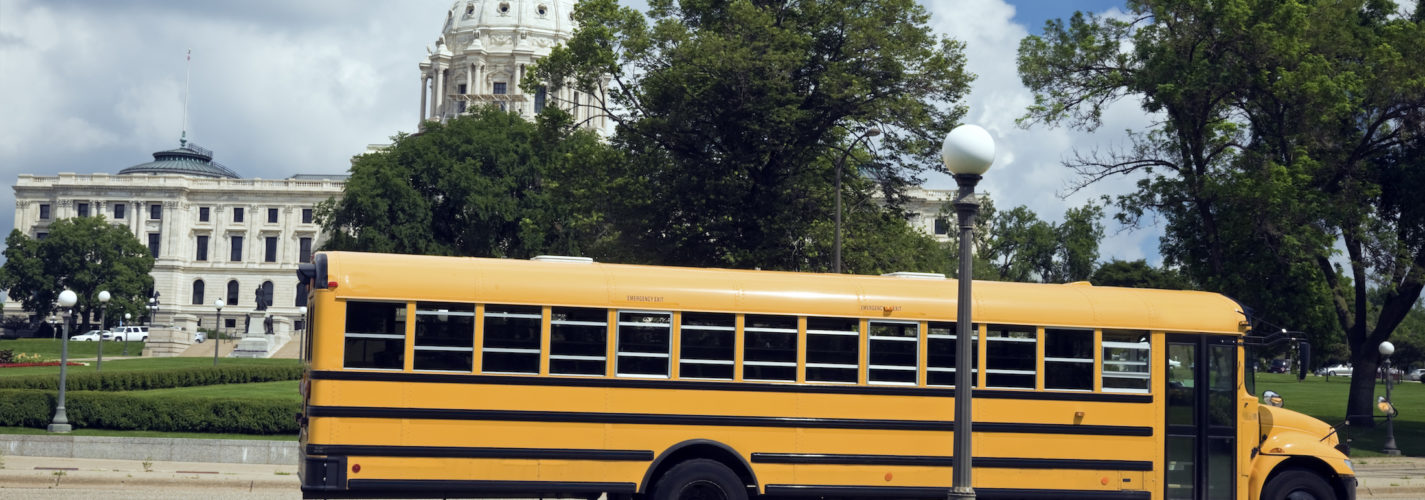EdAllies at the Capitol: Our 2018 Priorities
By Daniel Sellers
The 2018 legislative session kicked off on Feb. 20, and since it’s a short session, things are already in full swing with several key hearings in the coming weeks. As always, we’re focused on removing policy barriers so that Minnesota kids—and especially those most historically underserved in our schools—get the rigorous, engaging education they deserve. I’ll keep you updated as policy debates unfold, and opportunities to take action come up, but in the meantime, here are the highlights of our top priorities.
SCHOOL DISCIPLINE
Families and teachers alike want safe, engaging classrooms where kids can learn. To achieve this, educators need training and tools to manage their classrooms effectively and students need safe and supportive climates to maximize their learning. In partnership with the Solutions Not Suspensions coalition, we’re working to advance several policy reforms that would foster better communication and collaboration between schools and families before, during, and after a child is removed from school, encourage schools to adopt alternatives to school pushout that focus on keeping kids in the classroom and improving behavior long-term. Sen. Eric Pratt introduced a bill focused on these reforms, Senate File 2920, which had a hearing on March 6 featuring powerful testimony from educators, students, and advocates. The Minnesota Department of Education has also expressed support for a number of provisions. After years of fractured debate, we are hopeful that we can achieve bipartisan progress on this issue this year.
TRANSPARENCY
Families want clear information about how their local schools are doing. Whether they want to celebrate their school’s successes, know when their school needs more support, or explore the best options for their kids, they need a straightforward way to make sense of school outcomes. EdAllies is currently advocating to give families accessible information on school performance and improve how that information is collected in the first place.
First, we believe that as Minnesota implements a new school accountability plan under the federal Every Student Succeeds Act, a strong system for public transparency is essential. We’ve heard again and again from parents and community members that a clear, simple school-performance rating is an important element of the state’s public data dashboard under ESSA. Legislators have already introduced bills requiring this type of transparency in the Senate and House (Senate File 2816/House File 3178), with hearings on Tuesday, March 13.
We are also supporting legislation that would improve how schools administer state tests and make sure educators and families can access—and use—the results faster.
DATA DISAGGREGATION
In 2016, the Legislature passed a groundbreaking student achievement data disaggregation law, giving Minnesota the chance to lead the nation in understanding how schools serve students across race, ethnicity, and other important factors. To maximize this opportunity, Minnesota must now implement the law effectively, and leverage the resulting data to target resources to meet student needs. To ensure smooth implementation, and in the face of new threats at the Capitol, we and our coalition partners are continuing to educate legislators about the goals and benefits of data disaggregation.
TEACHER LICENSURE
For too long, Minnesota school leaders have faced barriers to hiring the best candidates for the job because of outdated licensure policies. After years of advocacy, educators and policymakers finally succeeded in developing a new teacher licensure system that sets a bar for entry into the classroom, while allowing school leaders to hire great teachers from a variety of preparation backgrounds. Now, as this new system gets ready to go live in July 2018, we’re closely tracking implementation, rulemaking, and conversations about amendments at the Capitol, to guarantee the new system launches smoothly and on time, finally removing barriers that have kept talented teachers out of Minnesota classrooms.
PARENT CHOICE
All parents want what’s best for their children. Period. All parents should therefore have the power to choose the right school for their child from a range of high-quality options. Unfortunately, school choice has historically been a privilege reserved only for some families. Policymakers should work to make sure that all children, and especially those who are currently underserved by their school options, never miss out on the school that best meets their academic, social, and developmental needs. As policymakers consider a variety of options—from increasing transparency around school performance, to leveling the playing field when it comes to access—we see it as our role to keep the conversation focused on equity, and ensuring that any proposal introduced focuses on the needs of low-income students first.
HOW TO KEEP UP?
In addition to these priorities, we are tracking much more, from early learning, to special education funding, to policies that would impact student inclusion. To stay in the loop on immediate updates on and opportunities to get involved, follow EdAllies on Twitter and Facebook where we’ll share new blogs, action alerts, news updates, and more.

